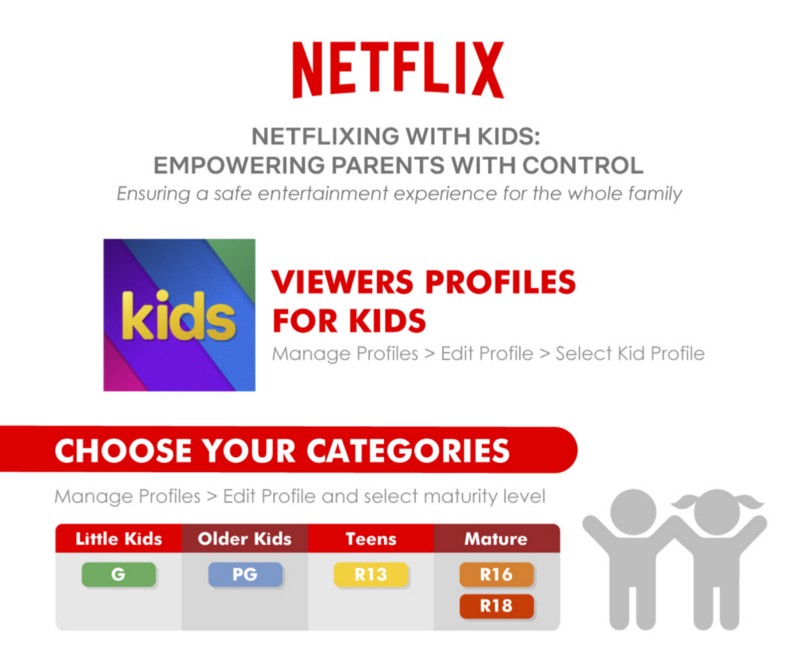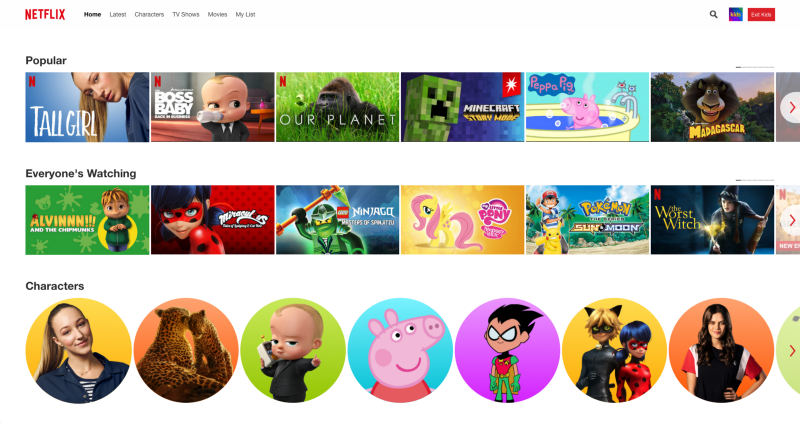Hello, Habr! I bring to your attention a translation of the article " Children's Exposure to Digital Technology Causes Parental Anxiet " by Kim Flaherty and Kate Moran.

While parents in America make sure their children enjoy technological advances, parents in China are thinking about how to protect their children from technological insanity.
How do technologies affect modern children and their lives?
In a Life Online study, we interviewed more than 100 parents from 6 different cities in different parts of the world. We listened to all their fears and fears and asked: how do their children get involved in the modern technological environment?
Today, our children grow up in the digital universe, among smartphones, tablets, computers, quadrocopters, virtual and augmented realities, one way or another we all face technologies every day. For a short period of time, we have invented many incredible devices, but we do not know at all how they will affect the future, including the lives of our children.

What are parents worried about?
Parents worry about everything, from health to social and cognitive skills and the future social status of their child. They do not know whether communication on the Internet will harm the child or help them succeed in learning among their peers and become a little more successful in life.

They are afraid that a world with digital screens and electrical devices will help reduce the physical activity of people.

And finally, they are afraid that letting children use digital devices, they stop participating in the process of raising a child and shift this burden to soulless machines and algorithms.

In the USA and Canada, the main focus is not on prohibition, but on minimizing the negative effects of technology on children, for example:
- Lower social skills
- Lower mindfulness and concentration
- Reduced adaptability to society
- Loss of identity
The mother of one of the children in Toronto is worried that her boy looks like a child with signs of autism when he looks at the screen of a mobile phone.

“If you need to puzzle a child and you don’t want to invent something, you can just give him an iPad, but do you really think that this method should always be used? Yes, definitely, there are cases when you can use this method and give your child a tablet for 30-60 minutes ... but in such cases, try to ask questions about what you’ve watched or include educational programs for your child. ”

Usually, the root of the problem lies in the control of time. Some people do not control their own time spent at a computer or other digital device, but try to limit children in this (it ended unsuccessfully).

The mother of two first-graders says: “If I can’t control how much time I spend at the computer, then how will my daughter be able to do this?”
Another important fear of parents: “A child who is used to a dynamic show that shows him a tablet will not want to listen to any school teacher, because it will be more boring than constantly changing pictures and images on the screen.”

Some parents are worried that online games and watching videos destroy the social skills of children, making them outcasts, and therefore ban YouTube and Twitch from their children.
Many parents are concerned about the balance of virtual and real lives of their children.
Sections, circles, or exercise can be more beneficial than sitting in front of a computer screen after returning from school.

Some parents specifically force their children to use the tablet only as an electronic primer or encyclopedia, setting limits on all other services and applications.
Golden mean
“On the one hand, tablets make us closed, stealing our time and attention, on the other ... My daughter, who is two years old, already knows the alphabet! When our friends ask us: how did you succeed !? I answer - it's all a tablet. My six-year-old child already knows everything about the structure of the Earth, about many other planets, such as Mars, and can tell how many rings there are. We did not teach him this ... it's all a tablet. But sometimes, we spend days of rest and go to the country to pick apples, refusing any electronic devices. ”

A young mother from Toronto decided to limit the time her child spends after the screen after the little pean crawled to the TV in the supermarket and began to slide her finger on the regular screen, hoping to change the picture.

Parents in China are of the following opinion:
“Technology is a blessing and a great responsibility. We must act as guides and keepers for our children, help them find new and interesting things, but also remember to keep track of the time they spend in front of the screen. ”
Strategies for control and influence
Parents who decide to limit the use of gadgets to their children use a variety of options ...
“I do not want my child to carry the phone and play it. The phone is only needed for emergency calls. "
Some parents give their children limited devices and allow them to play, only as a reward for some other type of activity (for example, solving homework or cleaning the house).

Another Mom gave her daughter an iPhone, not connected to the Internet, so her child could listen to music, use offline programs to learn languages and make regular calls.
Nowadays, in most modern smartphones and tablets there is already a "children's mode", this will not surprise anyone.

In China, some parents prohibit children from using gadgets and playing computer games before going to high school.

The Chinese government also monitors the gaming industry.
One of the prerequisites for a product to enter the Chinese market is the availability of built-in controls for the time the player spends in the game.



Some games in China require you to enter a personal user ID to control the total time of the game and the content that can be shown in the game to a child of a certain age.

In America and Canada, children are usually technology experts and very often children themselves provide technical advice to their parents.

Some parents ask their children to help them connect to Wi-Fi at home. One mother needed the help of a six-year-old child to project her computer screen onto a TV using Apple TV. The same mother said: “They must be technically savvy, this is obvious. And my 9-year-old daughter seems to just know how to deal with these things, she just has something to solve these kinds of problems [with devices and technologies]. It amazes me, I sincerely do not know where it comes from. ”
Conclusion
We live in a hyper-technological time.
We achieved this in a super short time and while we enjoyed the delights of progress, he formed a new vector of life and created many contradictions, the solution of which must be dealt with as soon as possible.
Funnel : the sense of pleasure we experience when a couple of svaypas separate us from the food, products and clothes ordered at home, instead of the possible physical exertion that we had to experience in order to get food or clothing.

Filling silence : people started using gadgets to fill their free time and “empty” moments in their lives.
On trains, on trains, on airplanes, waiting rooms, at work, at school ... the telephone has become an everyday source of scattering our attention. A rattle against boredom.

Digital life sometimes takes precedence over everyday life, plunging us and our children into the abyss of loneliness and imaginary society (chats, communities, groups).
We are getting closer virtually, but physically farther apart. It changes the lifestyle of us and our children, affects our health and productivity. Communication through the Internet is more like business communication, it does not convey the emotional reactions and experiences of the interlocutor, which we are able to pick up in person.

Please note that our research does not prove that excessive use of digital devices is harmful to children. To answer this question, it is necessary to conduct lengthy and serious studies, since any negative consequences appear with time, and not during one moment of observation. [ Scientists have found that gadget displays can accelerate the aging process ]
Our study showed how children today use gadgets, and this causes conflicting feelings and suspicions among many parents on different continents.
Therefore, it is very important to understand the concerns of parents when you develop technology or products for children.
A few key points to keep in mind:
- Limitations
Try to think through and minimize the transition from content to a restricted screen. Let it be less intrusive.
- Help parents



Help parents complete and customize the application for their children. You will make life easier for people and save them from the need for constant monitoring.
- We are all children
When you go to the mall, you probably see children's corners and game rooms ..
Many children, just like we use the Internet, watch cartoons and listen to music, why not think of a separate children's design for your product, website or application.



This is a very important topic and if you are interested, check out a detailed study on the differences in adult and child interfaces and their patterns.
Finally, remember that children in everything take an example from adults.
What an example we set for children when their parents smile at the screen of a mobile phone more often than each other.